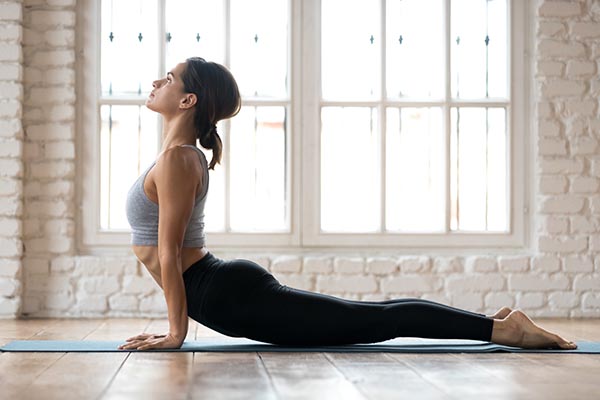The gyms are busy, the novice runners are pounding the pavements and determined amateur cyclists have pumped up their bike tyres for the first time in years with renewed enthusiasm to get out on the road.
It’s mid-January and the traditional new year fitness push is at its peak.
But exercise doesn’t just help your physical health – it can boost your mental health too.
We spoke to Eve Menezes Cunningham for her thoughts on how exercise – whether it’s going to the gym, running regularly, practising yoga, or even just going for a walk – can help us
“Exercise has an enormous part to play in mental health,” says Eve, who is a BACP accredited counsellor, coach and supervisor.
Helps confidence
“Most of my clients report an improvement in terms of sleep, anxiety, stress levels and dealing with trauma triggers. It also helps confidence. When we commit to something and follow through, we’re keeping our word to ourselves. We notice ourselves getting fitter.
“Clients report building up their exercise gradually and feeling much better about themselves.”

Exercise has an enormous part to play in mental health, says Eve.
Eve, who is on the executive committee of BACP’s coaching division, says the benefits of exercise to mental health are rooted in combating the release of stress hormones that are linked to our age-old fight or flight impulse.
“When we have a stressful thought, our physiology responds in a way that kept our ancient ancestors alive - when their stress response was set off by genuine danger. But this can have a debilitating impact on us in terms of chronic anxiety becoming depression.
“The way we’re built means that after a while, we don’t even need those stressful thoughts to trigger the release of stress hormones.”
Burn off stress hormones
Many people pace when they are stressed. That’s all because of the fight/flight impulse and acts as a way of burning off stress hormones, says Eve.
But people can also burn off those stress hormones by hitting the gym, riding a bike or going to yoga sessions.
It’s pacing – but stepped up a gear.
“If possible, make the movement as strong as your health and fitness levels allow,” says Eve.

Going for a run, bike ride, swim or doing yoga can help your mental health.
“It might be going for a run or bike ride or swim. A walk might be enough. You might not have the space to do that, so a dynamic yoga pose like Chair or a few Sun Salutations might work,” adds Eve, who is also a yoga therapist for mental health.
Or you might find push ups helpful if you’re not into yoga, she says.
“These are wonderful immediate or almost immediate self-care tools but having a regular exercise routine will help enormously too. Find something you enjoy so that it feels like self-care. Some people find group activities – rowing, netball or football – whatever appeals – more motivating too.”
Self-compassion is key
Eve adds that it’s important not to become too fixated with unachievable targets in your exercise routine.
“As with everything, it’s about progress not perfection,” she says.
“Self-compassion is key. If targets are unreachable, congratulate yourself for aiming high and see how you can make it more doable so you can keep building up.”
Eve wrote the book 365 Ways to Feel Better: Self-care Ideas for Embodied Wellbeing. Her website is at www.selfcarecoaching.net
To find a counsellor, coach or therapist to help with any of the issues mentioned in this article, visit our Therapist directory.
